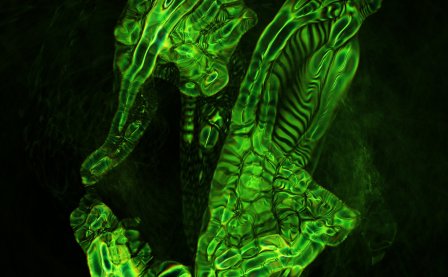British DJs invent new genres of electronic music as often as cubicle monkeys refresh their Gmail inboxes. Keeping up with these developments can be a chore, however, for us Yanks. We can't tune in to pirate radio or trek down to a South London club on a Friday night to hear how a different drum machine or piece of wave-editing software has transformed last weekend's hip sounds into even hipper sounds. Unless we're willing to sift through crates of import 12-inches or devote extravagant portions of our weeks to message-board scouring, we've got to be dabblers – we've got to buy the Run the Road comps, to rest content with enjoying UK garage but not quite being able to explain it to our friends.
And we've got to latch tightly on to records like Burial. Those records that grant access to "exotic" subcultures and transcend their milieus. The LPs that work for the diehards and the dilettantes. Albums whose songs allude to scores of obscure microgenres and regional artists but also recall the work of internationally acclaimed pop acts.
For most of us, this debut full-length from a mysterious English producer (or producers) will serve as an introduction to dubstep, the most recent trend to emerge from the scenes that spawned garage and grime. Dubstep, as its name implies, emphasizes cavernous bass, so much so that its effects are lost on cheap stereos. Rhythms move in sharp, repetitious arcs, but most of the genre's producers use slurred, stumbling beats to craft their grooves, which makes for some of the trippiest dancefloor fodder this side of Houston's chopped-and-screwed hip-hop tracks. Dubstep is menacing stuff, texturally rich but also foreboding, asking us to give ourselves over to desolate tones and disorienting rhythms, to sounds that signify little that is pleasant or welcoming.
Maybe it's easier to listen to this stuff on the subway or alone in your room than it is to dance to it. From the first notes of leadoff "Distant Lights," Burial recalls Arthur Russell's most abstract emissions, which is to say this isn't an album you put on for company. Disembodied voices echo through tunnels of low end that suggest Pole on codeine. Every instrument – and there aren't many – in the upper registers sounds melted or short-circuited. Think of it as dub by way of Factory Records, each sound resonating lonely as Ian Curtis's voice, each drum loop striking like A Certain Ratio's staccato funk.
When this album saw release in the UK back in March, its home-listening potentialities lead critics to call it both a step forward for dubstep and a step away from dubstep. Burial certainly plays like a capital-A Album rather than a collection of dance cuts. Now that Kode9 and Skream have released impressive but ultimately less affecting dubstep LPs, it's apparent that this album does indeed have something special going. Burial is a genuine event, a coming-out party for a style of music that will probably have run its course in a year from now. It's also a record that stands to be remembered apart from its immediate context, one to be valued not as a subcultural apex but as a fully realized work.
1. [Untitled]
2. Distant Lights
3. Spaceape
4. Wounder
5. Night Bus
6. Southern Comfort
7. U Hurt Me
8. Gutted
9. Forgive
10. Broken Home
11. Prayer
12. Pirates
13. [Untitled]
More about: Burial




